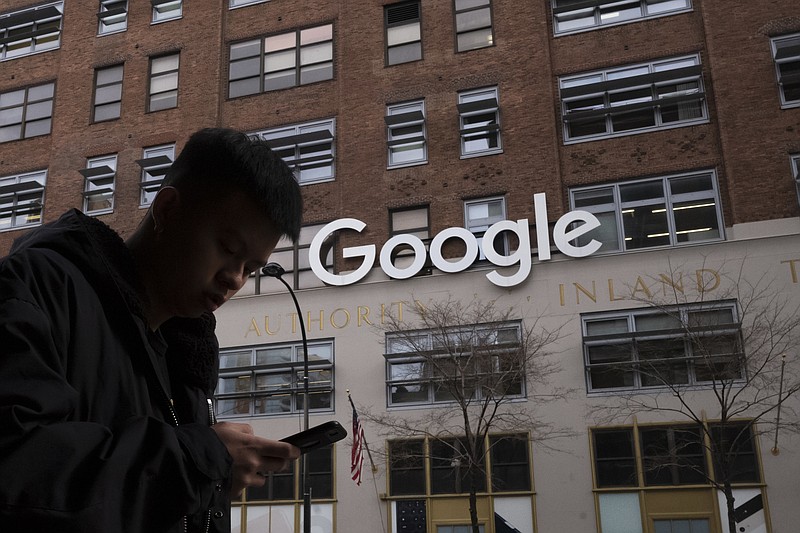NEW YORK -- When asked about Google, Bryan Clayton voices a familiar lament among small business owners.
"You keep getting squeezed further and further down the search results page," says Clayton, chief executive executive officer of GreenPal, a company that operates an app to help homeowners find lawn care. "As a startup, you don't have a million-dollar advertising budget."
The Justice Department sued Google on Oct. 20 for anticompetitive behavior, saying the company's dominance in online search and advertising harms rivals and consumers.
Owners such as Clayton have a different beef. What's unfair about Google, they say, is the way it gives the greatest prominence in search results to the companies that spend the most on advertising.
Companies covet the top spots in Google search results -- the first page of rankings, and the top of subsequent pages. But if too many companies vie for one of these spots, the cost can jump out of reach for a small business, just like the price for prime time TV commercials.
Google controls about 90% of global internet searches. The Justice Department sued Oct. 27, alleging it uses power in the search role to squelch competition. Business owners' concerns about the cost of advertising aren't directly related to the government's lawsuit, although the company's dominance of the search market has been alleged to be a factor in driving up the price to buy ads in its vast digital marketing network.
But even if prices were lower than they are now, larger companies with more money to spend, in theory, could always outbid smaller businesses vying for the prime advertising spots on Google.
Businesses have two main ways of trying to get their listings high in Google rankings. One is to buy an ad that's seen at the top of the search result pages; the cost for the ads depends on how often a computer user clicks on the ad and how much a company is willing to pay per click. The more a company can pay, the more likely it will get a prized spot in search results. Google has different types of ads, and whether an ad appears locally or nationally can also affect pricing. So can the time of day an ad appears.
There's also what's called paid search, where companies bid on keywords to get a higher ranking. For example, a sporting goods store might bid on words like "baseball" and "hockey" in hopes of landing higher in search results and being more easily seen by customers looking for equipment for those sports. The problem businesses face is they can be outbid by companies with deeper pockets. So the sporting goods store that can afford to pay only $2 a word can lose out to stores able to pay $10.
Mark Aselstine has spent as much as $30,000 a year on Google advertising, but he's not sure his wine gift basket company will be able to afford Google ads this holiday season.
"I don't think we'll run a single Google ad this year. I suspect it will be well out of our price range," says Aselstine, owner of Uncorked Ventures, based in El Cerrito, Calif.
If Aselstine can't afford Google, he has alternatives. Microsoft's Bing search engine, cheaper but not as popular among computer users, is one. Aselstine can also increase his use of Google's unpaid search, where results are determined purely by algorithm.
Clayton, the GreenPal CEO, spends about $100,000 a year on Google advertising. That's a big number for a small company -- GreenPal has 23 employees --but Clayton lists giants Angie's List and HomeAdviser among his competitors that have much bigger advertising budgets. GreenPal, based in Nashville, Tenn., and serving homeowners in most of the states, spends about $3 or $4 per click for ads.
But, Clayton says, "it's getting harder to advertise -- the price keeps going up and up."

